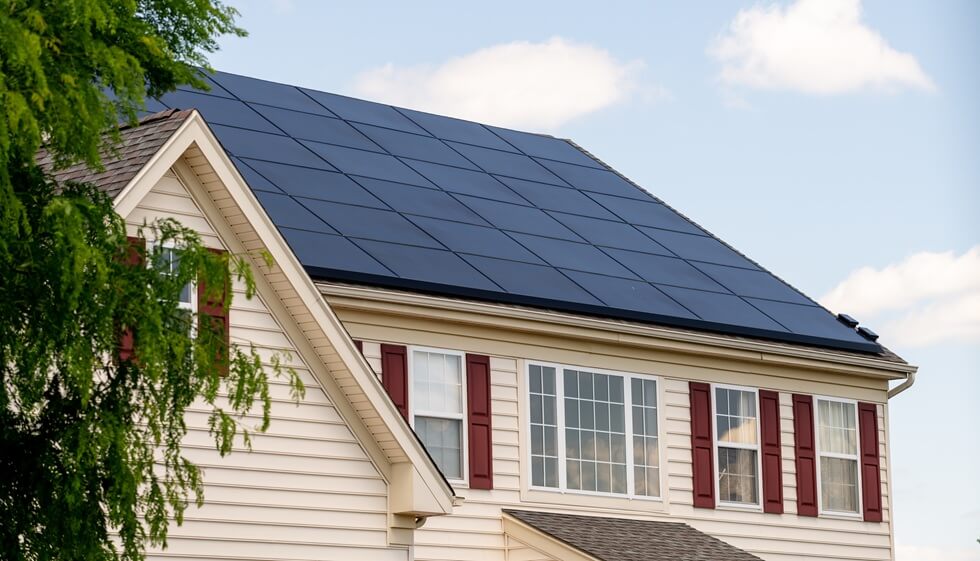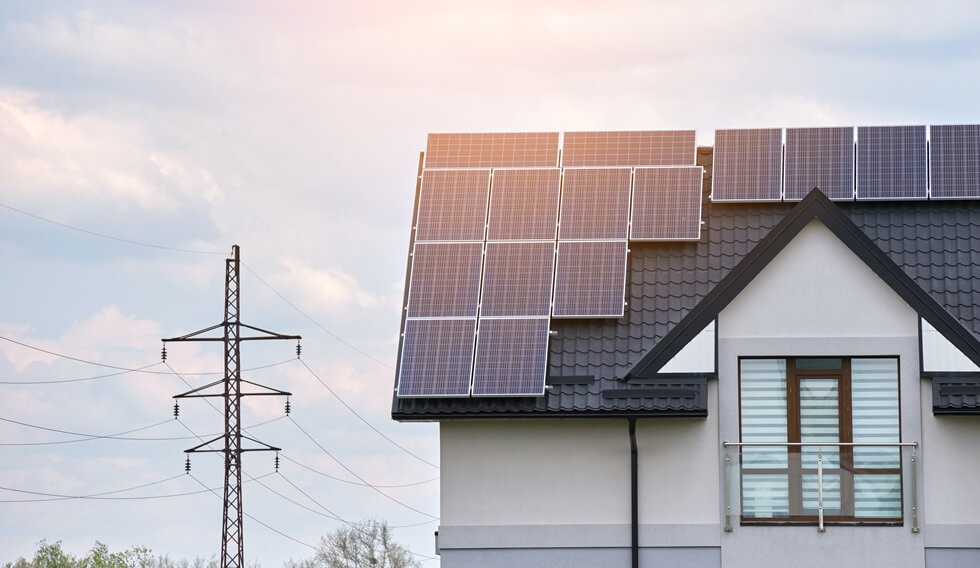Residential solar panels are known for reducing a home’s carbon footprint and switching to green energy production. However, most people find that saving money on their energy bills with solar usage to be the most appealing benefit. Before committing to solar panels, every homeowner should first understand how those panels will impact their energy consumption. Not all homes will completely replace their utility bill using solar; still, for many, the cost savings are worth the investment.
How much you can really save by switching to solar panels depends on numerous factors. From property location and orientation to the condition of the panels and how frequently you maintain them, solar panels rely on a range of variables to determine the final output.
Do Residential Solar Panels Really Save Money?
Those considering the switch to solar energy for its financial benefits typically want to know whether solar panels really save money. Can they make a significant dent in a home’s utility bill, and will the investment balance out with the installation costs and maintenance?
While the answer to these questions will vary for each home, an appropriate solar installation should save any home money over time. This refers to having a solar system that is designed specifically for your home, factoring in the size, shape, and direction of your roof as well as your home energy consumption and other factors that are unique to your situation.
Depending on these factors, the cost of installation can be recovered by savings in just a few years. A household in America, regardless of location, will usually save approximately $50,000 in energy costs over a 25-year period following solar panel installation.

Take Advantage Of These Savings
Taking full advantage of a solar array requires knowing what is now available to you. The main ways homeowners are boosting how much they save by switching to solar panels include:
Federal Tax Credit for Solar
The federal government provides incentives for homes to switch to solar energy. The federal tax credit allows solar buyers to receive a 30% tax credit for any costs associated with solar. This means that individuals who qualify will see their tax bill reduced according to a percentage of the cost of their newly installed solar system.
Another method homeowners can use to save more by switching to solar panels is net metering. The home can connect directly with the grid using a two-way system—that is, not only can the home draw energy from the municipal utility supplier, but it can also feed energy back into the grid that is not being used.
In exchange for taking this surplus solar energy, the utility company pays the homeowner (usually through bill credits). Net metering typically returns the same value to the homeowner as the power is worth; that is, an eligible customer that pays ten cents per kWh used will receive ten cents per kWh generated and fed into the grid.
SRECs
Solar renewable energy credits, or SRECs, are earned by generating power—even if it is not in excess of the home’s energy needs for net metering purposes. Homeowners receive one credit per megawatt-hour of clean energy produced, and they can sell these SRECs back to companies who need to uphold sustainability goals. Each SREC is worth money, and homes with solar tend to earn multiple SRECs each year.
Reduced Grid Consumption
The savings that most people think of when they envision solar come from reduced grid consumption. When a solar array fulfills 50% of a home’s energy needs, that home’s utility bill will decrease by a similar margin.
Switching to solar panels can save a home hundreds of dollars each month depending on energy usage and the size of the system, with some systems able to fully replace the electrical consumption portion of a utility bill.
Property Value
One less common consideration when calculating the financial savings from a solar system is how it affects the property value. Installing a solar array can boost the value of a property, which is a significant advantage for those considering selling soon. To further this benefit, Maryland law allows that if solar panels increase the value of the home, the homeowner is exempt from those taxes.

Save Money by Going Solar in Maryland with Energy Select
Are you ready to slash your energy bills and reduce your carbon footprint? Going solar isn’t just an eco-friendly choice – it’s a smart financial decision that can save you thousands over time. Imagine cutting your electricity costs while increasing your home’s value!
Don’t wait to start saving! Schedule your FREE solar estimate today and discover how much you could save with Energy Select’s cutting-edge solar panel systems. At Energy Select, we’re passionate about helping homeowners like you harness the power of the sun. Contact Energy Select to schedule an estimate today!


